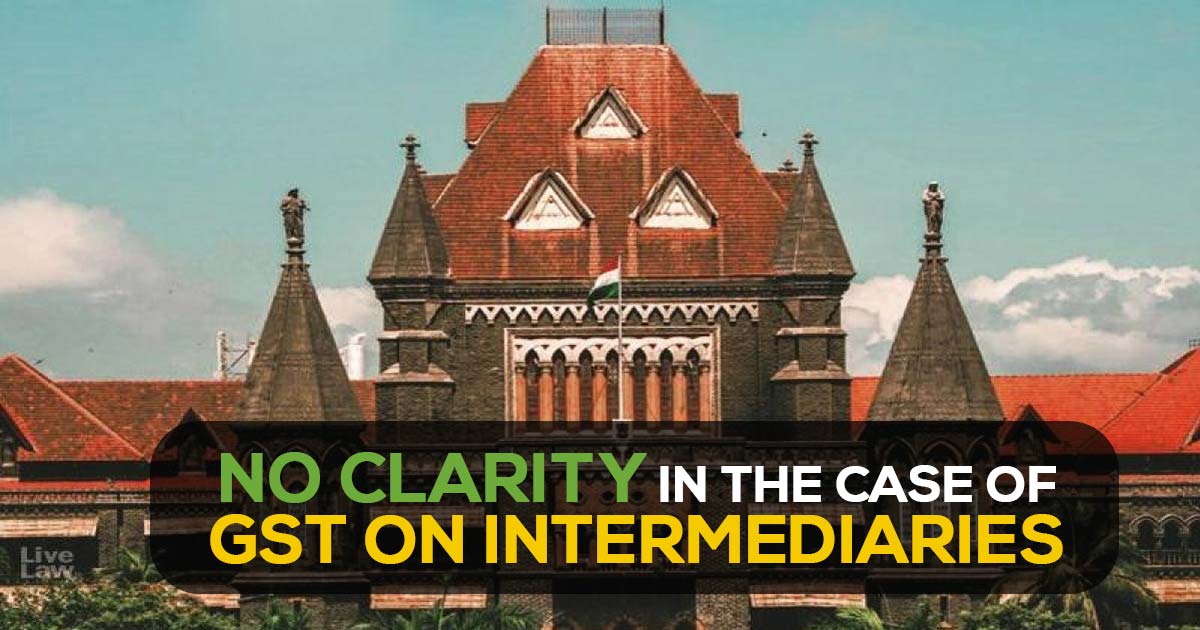
The Bombay High Court ruled that the state could not impose the GST on goods and services furnished via intermediaries to its foreign customers.
However, while the requirements of the Integrated GST Act have been maintained, experts are unsure whether the Integrated Goods and Services Tax may be applied to these transactions.
An intermediary would be the agent or broker that would ease the goods or services supply between two people, an entity that used to act on the grounds of other individuals in the goods or services supply.
The problem is concerned with the taxability of the services furnished via an intermediary to the foreign customer. The disagreement centred on the status of intermediate services delivered to overseas consumers in comparison to service export. The same was incorporated before the High Court in 2021 and transferred to the single bench as the division bench cannot arrive at an agreement.
The issue would concern the provision of the IGST act which deems all the supplies that have been incurred via intermediary as local supply. The same directed that the recipient of the services being a foreign country, central and state GST were imposed on these transactions. The same would breach the constitutions since the states do not secure the authority to tax the services of export, the assessee claimed.
Read Also: GST Impact on Export Industry in India
The single bench of the High Court would mention that CGST and SGST could not be charged on such transactions as the exports would be outside the boundary of the power of the state of taxation.
It does not clear from the decision of the high court that the IGST of 18% could be charged on the same transactions.
Consider a transaction in which an Indian middleman serves an overseas customer on behalf of a foreign corporation. The supply occurs outside of the nation, and the commission is paid in foreign currency.
Till now these transactions shall draw a 9% CGST including a 9% SGST. However, as the constitutionality of the IGST provision for the intermediaries would be carried that the exports would get divided on their relevance.
The assessee shall own no liability under IGST.
Tax experts mentioned that IGST was never liable to get paid by virtue of the legal provisions. By denying the application of state GST, the court has basically eliminated the tax liability of any such intermediaries.
The current provision does not give acknowledge the IGST charge on the intermediary services, “The net effect is that unless the provisions are amended, no GST can be levied on intermediary services.” a tax expert stated.
However, Asish Philip Abraham of Lakshmikumaran and Sridharan Attorneys believes otherwise.
According to Abraham, the GST statutes now recognize any transaction with a non-resident person (an overseas customer) as an interstate transaction. It has expressly excluded from the scope of an intrastate transaction a transaction conducted by an intermediary with a non-resident.
This indicates that neither CGST nor SGST was levied on these transactions. However, if someone did pay, it was because of flaws in the GST websites, he explained.
Regardless of the outcome of the case, taxpayers will continue to be liable under the IGST Act. When it comes to transactions with non-residents in foreign currency, this decision has limited effect.
For the transaction, the conditions would become much more tough where an Indian intermediary would service the domestic customer, on the grounds of the overseas company.
A foreign principal is served by an Indian intermediary exporting services in the initial phase of the transaction. An Indian consumer imports the service from this overseas primary in the second leg of the transaction. According to the high court’s single bench, these two separate transactions cannot be combined in order to levy GST.
These transactions might be obligated to file the tax under the IGST act as the final consumption would arrive in India.
The same may be directed to the double taxation since the import duty along with the other countervailing duties would get charged on these transactions as per the court.
The court does not have provided any clarity on the fate of these transactions. Such transactions might be obligated for an 18% IGST, as the supply and consumption take place within the country.
Under CGST or SGST acts the assessee who would have paid the tax might ask for the readjustment of any amount they paid for the IGST.








